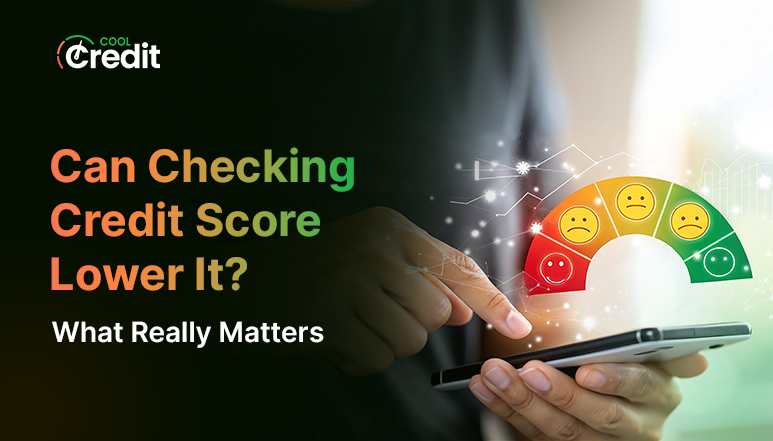
How To Check Business Credit Score: Meaning, Factors, and Methods
Did you know your business has a credit score, just like you do?
If you’re unsure what that means, it’s time to learn “how to check business credit score.”
In today’s fast-paced business world, your company’s credit score is more than just a number. It demonstrates the trustworthiness and financial reliability of your business. Moreover, lenders, suppliers, and investors consider it before deciding to lend money, extend credit, or partner with you. A high score can unlock better loan offers, longer payment terms from suppliers, and more business opportunities. On the other hand, a low score can make it harder and more expensive to borrow money or gain trust.
In this blog, you’ll learn how to check your business credit score and what factors influence it. Whether you’re a new entrepreneur or managing a growing company, knowing your score helps you make smarter financial decisions with confidence.
Check Your Business Credit Score Now
Sign Up NowWhat Is a Business Credit Score?
Your business credit score shows how financially trustworthy your company is. It tells lenders and suppliers how likely your business is to repay debts on time.
Like personal credit scores, a business credit score is based on your company’s payment track record, debts, and financial habits.
Scores usually range from 0 to 100 and are calculated using your payment behavior, public financial records, and business details. To boost your score, pay your bills on time, keep credit balances low, and choose vendors who report your payments to the credit bureaus.
7 Important Elements That Shape Your Business Credit Score
How to check business credit score is one thing. But it’s even more crucial to understand what affects it in the first place.
1. Payment History
This is the most important factor. It shows how regularly your business pays bills, loans, and vendor invoices. In simple words, paying on time (or early) helps your score, while late or missed payments bring it down.
2. Credit Utilization
This shows how much of your available credit you’re using. Try to use less than 30% of your total credit limit. Using too much or maxing out your credit lines makes your business look financially stretched.
3. Company Age and Size
Older and established businesses usually have higher credit scores because they’ve built a longer credit history. Whereas new businesses often have limited data, so their scores may change more easily.
4. Public Records and Legal Filings
Credit agencies check for negative records such as bankruptcies, tax liens, or legal judgments. These can seriously harm your business credit score.
5. Credit Mix and Account History
Having different types of credit—like a business credit card, trade credit, and loans—shows that your company can manage credit responsibly. A long and positive credit history adds to your score’s strength.
6. Industry Risk and Business Type
Some industries are naturally riskier than others. So, if your business operates in a high-risk sector (like construction or retail), it may impact your score.
7. Business Information Consistency
Errors or outdated data can confuse lenders and affect your score. For that reason, make sure your company details (name, address, registration info) are accurate and consistent across all platforms.
How To Check Business Credit Score
Unlike personal credit scores (which range from 300 to 850), business credit scores usually fall between 0 and 100, depending on the credit bureau.
| To check your business’s credit score, you can use reports from four major agencies: ▪ Dun & Bradstreet (D&B PAYDEX Score) ▪ Experian Business Score ▪ Equifax Business Credit Risk Score ▪ FICO® Small Business Scoring Service℠ (SBSS) |
Each agency uses different data and methods, but all of them help you understand how financially trustworthy your business looks to lenders and partners.
Dun & Bradstreet (D&B PAYDEX Score)
▪ Dun & Bradstreet (D&B) is one of the world’s top providers of business credit information and analytics. It helps companies, lenders, and investors understand how financially healthy and reliable a business is.
▪ D&B collects and analyzes millions of data points from around the world. Then it creates detailed business credit reports and credit scores.
To track businesses globally, D&B uses the D-U-N-S® (Data Universal Numbering System) — a massive database that assigns every registered business a unique 9-digit D-U-N-S Number. This number acts like a business identity, similar to an SSN (Social Security Number).
How To Check Business Credit Score Through D&B Measures
Dun & Bradstreet uses multiple scores and ratings, but the main ones are:
▪ D&B PAYDEX® Score (0–100)
The most well-known scoring and rating method. It measures how promptly a business pays its bills.
| Score Range | Interpretation |
| 80–100 | Pays on time or early |
| 50–79 | Pays 15–30 days late |
| 0–49 | Pays over 30 days late |
▪ D&B Failure Score (1–100)
It predicts the likelihood of a business facing financial distress or failure within the next 12 months.
▪ D&B Delinquency Predictor Score
This model predicts the chance that a business will delay payments by 90 days or more. Banks and vendors use it to decide whether to offer credit and on what terms.
▪ D&B Financial Stress Score
It evaluates a company’s financial stability based on payment history, financial ratios, and size.
Unlock Insights Into Your Business Credit Score
Get the AppExperian Business Score
How to check business credit score through Experian utilizes several key scores and reports. The most common being the Experian Business Credit Score and the Experian Intelliscore Plus (SME version).
1. Experian Business Credit Score (Scale: 1–100)
This model predicts the likelihood of serious credit delinquency (e.g., default, 90+ days late payment) within the next 12 months.
| Score Range | Risk Level | Interpretation |
| 76-100 | Low Risk | Pays bills on time, financially strong |
| 61-75 | Moderate Risk | Generally reliable but with minor payment issues |
| 26-50 | High Risk | May pay late or have unstable finances |
| 1-25 | Very High Risk | Likely to default or already delinquent |
2. Experian Intelliscore Plus (Scale: 1–100)
A more advanced model that predicts the likelihood of default within 12 months.
The inputs considered for this model are:
- Business age and size
- Payment trends
- Credit utilization
- Number and type of credit accounts
- Legal filings (e.g., bankruptcies, judgments, liens)
- Public record data
Equifax Business Credit Risk Score
The Equifax Business Credit Risk Score is a number that shows how likely a company is to miss payments or default within the next 12 months.
Equifax builds this score by collecting data from:
- Banks, NBFCs, and trade suppliers
- Public records such as bankruptcies, judgments, and liens
- Business registrations and financial statements
- Industry-specific payment information
Widely used business credit risk scores by Equifax are:
1. Equifax Business Credit Risk Score™ (101–992)
It predicts the likelihood of payment delinquency (90+ days past due) or business failure in the next 12 months.
| Score Range | Risk Level | Interpretation |
| 580–992 | Low Risk | Pays on time, financially healthy |
| 340–579 | Medium Risk | Some delayed payments or growing debt |
| 101–339 | High Risk | High probability of default or severe delinquency |
2. Equifax Business Failure Score™ (1000–1880)
It estimates the probability that a business will fail (e.g., go bankrupt, close, or default) within 12 months.
| Score Range | Risk Level | Interpretation |
| 1650–1880 | Low Risk | Financially strong and stable |
| 1450–1649 | Moderate Risk | Possible operational or payment strain |
| 1000–1449 | High Risk | High likelihood of financial distress or closure |
3. Equifax Business Delinquency Score™
This rating helps predict whether a business might struggle to make payments or default in the next 90 days, allowing banks and vendors to make smarter credit decisions.
FICO® Small Business Scoring Service℠ (SBSS)
The FICO SBSS Score is a business credit score developed by FICO (Fair Isaac Corporation). It is basically used to predict the likelihood that a small business will repay a loan on time.
How To Check Business Credit Score by FICO Sbss Measures
- Score Range: 0–300
- Higher scores = Lower credit risk
- A score of 140 is generally the minimum required for SBA-backed loans
- Lenders may set their own internal cutoffs
Conclusion
Today, business credit is more visible and influential than ever. A strong business credit score gives you an advantage. It indeed builds trust, increases flexibility, and helps you move quickly when new opportunities arise.
That’s why knowing how to check business credit score regularly isn’t optional — it’s essential. Doing so helps you catch errors, monitor changes, and improve your financial reputation over time.







